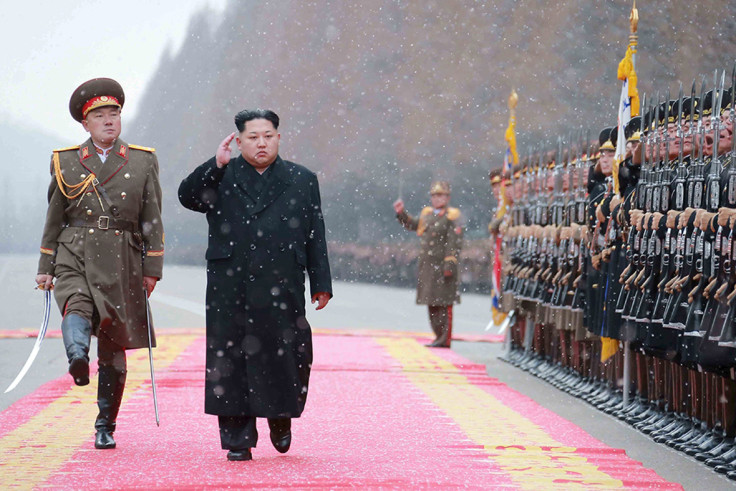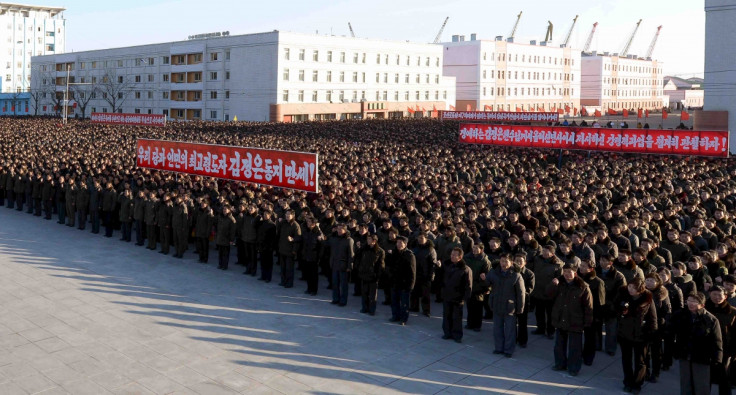North Korea preparing to launch long range explosive missile by 3 February warns Japan

North Korea may launch a long range missile carrying an explosive as early as next Wednesday (3 Feb 2016), a Japanese news agency has warned. According to Kyodo news agency, which quoted a senior Japanese government official, satellite images have revealed the preparations are already taking place ahead of the launch.
North Korea's leader Kim Jong-un has recently claimed to possess a hydrogen bomb which could wipe out the whole of the US. The fanatical communist regime has conducted several nuclear tests and on 6 January claimed to have detonated a hugely destructive hydrogen bomb launched from a submarine aboard a ballistic missile.

The test will almost certainly mean more sanctions against the country. Western observers do not believe the device was an H-bomb as its yield was only 6 kilotons, which is around 100 times smaller than an H-bomb.
North Korea claims it is developing weapons of mass destruction purely to protect itself against attack. However North Korea's state news agency KCNA said: "Scientists and technicians [...] are in high spirit to detonate H-bombs [...] capable of wiping out the whole territory of the US all at once."
The US is in talks with China, the only state with any form of influence over the regime, in the hope of drafting a UN Security Council resolution over nuclear tests in the area. So far there has been little sign of progress. Meanwhile UNICEF claims that thousands of children are starving inside the isolated country because of a severe drought. However obtaining solid news from inside the country is notoriously difficult.
Concerns about North Korea formed part of the calculation as scientists decided the "World Doomsday Clock" should remain at three minutes to midnight. Climate change and tensions between the West and Russia were among other reasons given for the pessimistic ruling by a team of physicists from around the world.
© Copyright IBTimes 2024. All rights reserved.






